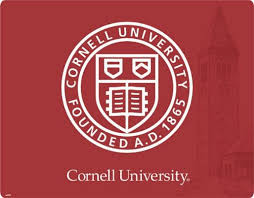ORGANIZATION PAGE

Cornell University
1 followers | 0 upcoming workshops
ABOUT ORGANIZATION
Ithaca Ithaca NY 14850 Ithaca NY Ithaca 14850
For the liberal arts college in Mount Vernon, Iowa, see Cornell College. "Cornell" redirects here. For other uses, see Cornell (disambiguation). Cornell UniversityCornell University seal.svg Latin: Universitas Cornelliana Type Private/Statutory[1] Land-grant Sea-grant Space-grant Research Established February 19, 1865; 155 years ago Academic affiliations AAU SUNY APLU NAICU Endowment $7.33 billion (2019)[2] President Martha E. Pollack Provost Michael Kotlikoff Academic staff 1,639 – Ithaca, New York 1,235 – NYC, New York 34 – Doha, Qatar Students 24,027 (Fall 2019)[3] Undergraduates 15,043 (Fall 2019)[3] Postgraduates 8,984 (Fall 2019)[3] Location Ithaca , New York , United States 42°26′50″N 76°28′59″WCoordinates: 42°26′50″N 76°28′59″W Campus Rural[4] 4,800 acres (19 km2) Colors Carnelian, white[5] Athletics NCAA Division I – Ivy League Nickname Big Red Mascot Touchdown the Bear (unofficial)[6] Website cornell.edu Cornell University logo.svg Cornell University (/kɔːrˈnɛl/ kor-NEL) is a private and statutory Ivy League research university in Ithaca, New York. Founded in 1865 by Ezra Cornell and Andrew Dickson White,[7] the university was intended to teach and make contributions in all fields of knowledge—from the classics to the sciences, and from the theoretical to the applied. These ideals, unconventional for the time, are captured in Cornell's founding principle, a popular 1868 quotation from founder Ezra Cornell: "I would found an institution where any person can find instruction in any study."[8] The university is broadly organized into seven undergraduate colleges and seven graduate divisions at its main Ithaca campus, with each college and division defining its specific admission standards and academic programs in near autonomy. The university also administers two satellite medical campuses, one in New York City and one in Education City, Qatar, and Cornell Tech, a graduate program that incorporates technology, business, and creative thinking. The program moved from Google's Chelsea Building in New York City to its permanent campus on Roosevelt Island in September 2017. Cornell is one of the few private land grant universities in the United States.[note 1] Of its seven undergraduate colleges, three are state-supported statutory or contract colleges through the State University of New York (SUNY) system, including its agricultural and human ecology colleges as well as its industrial labor relations school. Of Cornell's graduate schools, only the veterinary college is state-supported. As a land grant college, Cornell operates a cooperative extension outreach program in every county of New York and receives annual funding from the State of New York for certain educational missions.[9] The Cornell University Ithaca Campus comprises 745 acres, but is much larger when the Cornell Botanic Gardens (more than 4,300 acres) and the numerous university-owned lands in New York City are considered.[10] Alumni and affiliates of Cornell have reached many notable and influential positions in politics, media, and science. As of October 2020, 61 Nobel laureates, four Turing Award winners and one Fields Medalist have been affiliated with Cornell University. Cornell counts more than 250,000 living alumni, and its former and present faculty and alumni include 33 Marshall Scholars, 33 Rhodes Scholars, 29 Truman Scholars, 7 Gates Scholars, 55 Olympic Medalists, 10 current Fortune 500 CEOs, and 35 billionaire alumni.[11][12][13][14][15] Since its founding, Cornell has been a co-educational, non-sectarian institution where admission has not been restricted by religion or race. The student body consists of more than 15,000 undergraduate and 9,000 graduate students from all 50 American states and 119 countries.[3]

 Use your current location
Use your current location